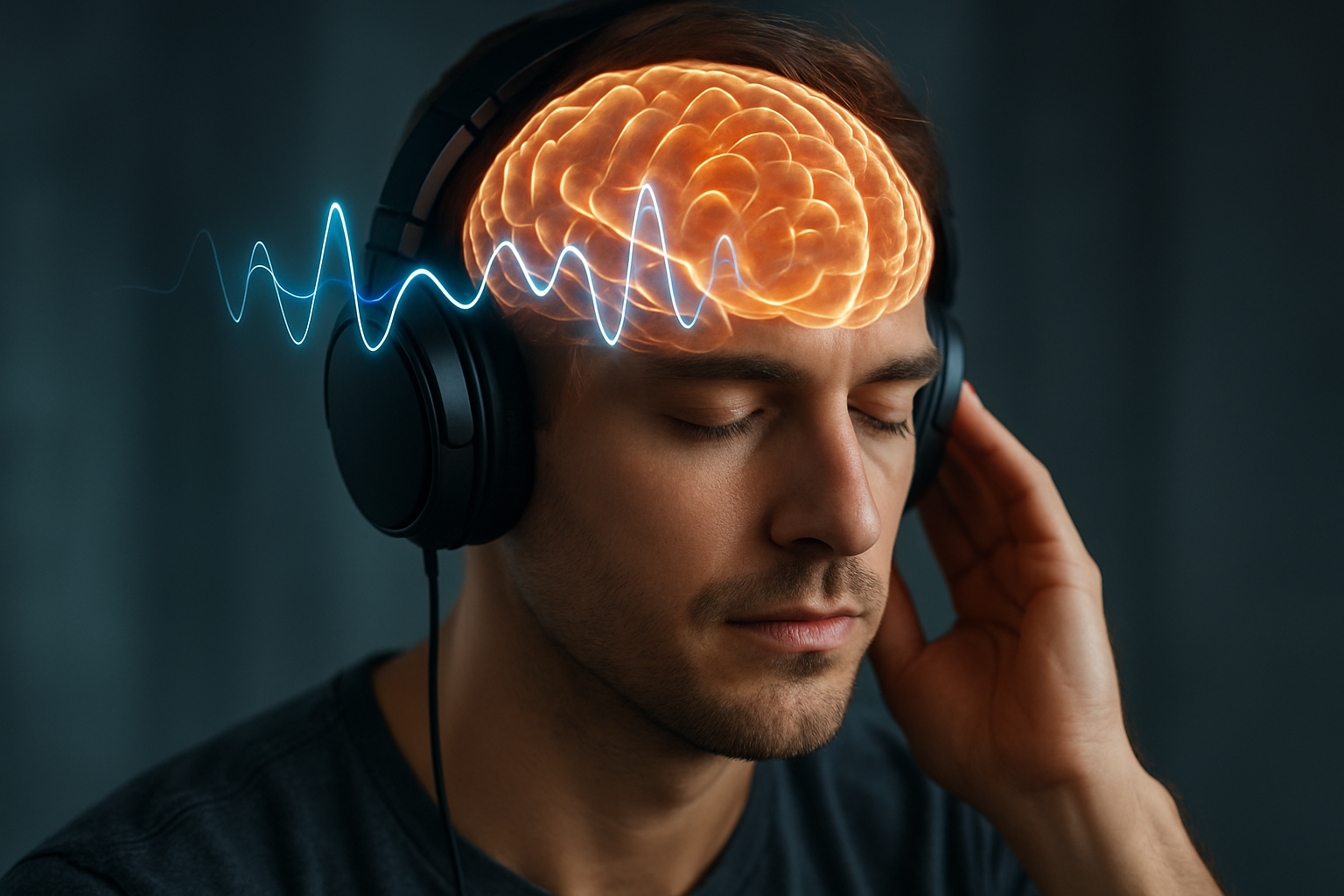Binaural Beats: Tuning Your Brain for Optimal Performance
Can sound waves really enhance cognitive function and emotional well-being? The fascinating world of binaural beats suggests they can. This cutting-edge auditory technology is gaining traction among wellness enthusiasts and researchers alike, promising a non-invasive way to boost mental performance and reduce stress. But what exactly are binaural beats, and do they live up to the hype?

This phenomenon was first discovered in 1839 by Heinrich Wilhelm Dove, a Prussian physicist and meteorologist. However, it wasn’t until the late 20th century that researchers began exploring the potential cognitive and therapeutic applications of binaural beats.
How Binaural Beats Affect Brain Waves
The human brain produces electrical impulses that can be measured as brain waves. These waves are categorized into different frequency bands:
-
Delta (0.5-4 Hz): Deep sleep, restorative processes
-
Theta (4-8 Hz): Meditation, creativity, memory formation
-
Alpha (8-13 Hz): Relaxation, focus, learning
-
Beta (13-30 Hz): Active thinking, problem-solving
-
Gamma (30-100 Hz): Higher cognitive functions, insight
Proponents of binaural beats argue that by exposing the brain to specific beat frequencies, we can entrain our brain waves to match those frequencies, potentially influencing our mental state and cognitive abilities.
Potential Benefits of Binaural Beats
Research into the effects of binaural beats has yielded some promising results across various domains:
Cognitive Enhancement
Several studies have explored the potential of binaural beats to improve cognitive function. A 2017 study published in the journal Psychological Research found that exposure to beta-frequency binaural beats was associated with improved attention and task performance.
Another study, published in Frontiers in Human Neuroscience in 2019, reported that gamma-frequency binaural beats enhanced short-term memory performance in healthy adults.
Stress Reduction and Relaxation
Alpha-frequency binaural beats have been associated with increased relaxation and reduced anxiety. A 2019 study in the journal Frontiers in Human Neuroscience found that participants who listened to alpha binaural beats showed reduced physiological markers of stress compared to those who listened to a placebo sound.
Sleep Improvement
Delta-frequency binaural beats may help improve sleep quality. A 2018 study published in Frontiers in Human Neuroscience reported that participants who listened to delta binaural beats before sleep experienced improved sleep quality and reduced sleep latency.
Pain Management
Some research suggests that binaural beats may have potential in managing chronic pain. A 2016 study in the European Journal of Pain found that theta-frequency binaural beats reduced the perception of pain in fibromyalgia patients.
Implementing Binaural Beats in Your Wellness Routine
While the research on binaural beats is still evolving, many people are incorporating this technology into their daily routines. Here are some tips for those interested in exploring binaural beats:
-
Choose the right frequency: Different frequencies are associated with different mental states. Beta frequencies may be best for focus and concentration, while alpha frequencies might be more suitable for relaxation.
-
Use stereo headphones: Binaural beats require separate tones to be played in each ear, so stereo headphones are essential.
-
Start with short sessions: Begin with 15-30 minute sessions and gradually increase duration as you become more comfortable with the experience.
-
Combine with other relaxation techniques: Binaural beats can be used in conjunction with meditation, deep breathing, or progressive muscle relaxation for enhanced effects.
-
Be consistent: Regular use may be necessary to experience significant benefits.
Binaural Beat Insights
-
The perceived beat frequency must be below 1000 Hz for the brain to detect the binaural beat
-
Binaural beats are most effective when the carrier tones are between 100-1500 Hz
-
The volume of binaural beats should be set at a comfortable level, as loud volumes can be counterproductive
-
Some people may be more responsive to binaural beats than others
-
Binaural beats should not be used while driving or operating heavy machinery
-
Individuals with epilepsy should consult a doctor before using binaural beats, as certain frequencies may trigger seizures
The Future of Auditory Brain Entrainment
As research into binaural beats continues to expand, we may see more targeted applications in fields such as education, therapy, and performance enhancement. While not a magic bullet, binaural beats represent an intriguing intersection of neuroscience and auditory technology, offering a potentially powerful tool for optimizing brain function and promoting overall well-being.
As with any wellness trend, it’s essential to approach binaural beats with an open yet critical mind. While the current research is promising, more extensive studies are needed to fully understand the long-term effects and optimal applications of this fascinating auditory phenomenon. As we continue to unlock the mysteries of the brain, binaural beats may prove to be a valuable addition to our cognitive toolkit, helping us tune into our full potential.






